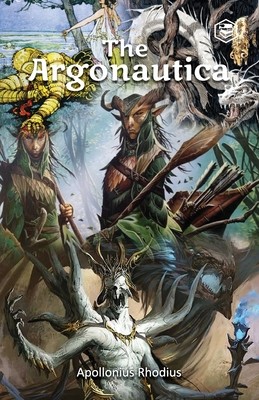
- We will send in 10–14 business days.
- Author: Apollonius Rhodius
- Publisher: Sanage Publishing House
- ISBN-10: 9391560571
- ISBN-13: 9789391560577
- Format: 14 x 21.6 x 1 cm, minkšti viršeliai
- Language: English
- SAVE -10% with code: EXTRA
Reviews
Description
The Argonautica is a Greek epic poem written by Apollonius Rhodius in the 3rd century BC. The only surviving Hellenistic epic, the Argonautica tells the myth of the voyage of Jason and the Argonauts to retrieve the Golden Fleece from remote Colchis. Their heroic adventures and Jason's relationship with the dangerous Colchian princess/sorceress Medea were already well known to Hellenistic audiences, which enabled Apollonius to go beyond a simple narrative, giving it a scholarly emphasis suitable to the times. It was the age of the great Library of Alexandria, and his epic incorporates his research in geography, ethnography, comparative religion, and Homeric literature. However, his main contribution to the epic tradition lies in his development of the love between hero and heroine - he seems to have been the first narrative poet to study ""the pathology of love"". The Argonautica had a profound impact on later Latin poets like Virgil, Catullus and Ovid.
EXTRA 10 % discount with code: EXTRA
The promotion ends in 23d.07:38:09
The discount code is valid when purchasing from 10 €. Discounts do not stack.
- Author: Apollonius Rhodius
- Publisher: Sanage Publishing House
- ISBN-10: 9391560571
- ISBN-13: 9789391560577
- Format: 14 x 21.6 x 1 cm, minkšti viršeliai
- Language: English English
The Argonautica is a Greek epic poem written by Apollonius Rhodius in the 3rd century BC. The only surviving Hellenistic epic, the Argonautica tells the myth of the voyage of Jason and the Argonauts to retrieve the Golden Fleece from remote Colchis. Their heroic adventures and Jason's relationship with the dangerous Colchian princess/sorceress Medea were already well known to Hellenistic audiences, which enabled Apollonius to go beyond a simple narrative, giving it a scholarly emphasis suitable to the times. It was the age of the great Library of Alexandria, and his epic incorporates his research in geography, ethnography, comparative religion, and Homeric literature. However, his main contribution to the epic tradition lies in his development of the love between hero and heroine - he seems to have been the first narrative poet to study ""the pathology of love"". The Argonautica had a profound impact on later Latin poets like Virgil, Catullus and Ovid.


Reviews